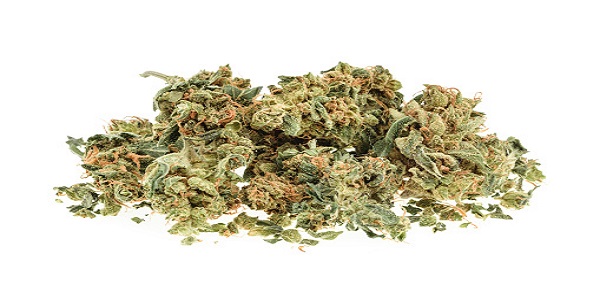Where to Buy K2 Paper for Sale: The Top Cannabis-Friendly Sources
Where to Buy K2 Paper for Sale: The Top Cannabis-Friendly Sources
Blog Article
Examining the Promising Applications and Favorable Influences of Seasoning as a Synthetic Cannabinoid
Over the last few years, the exploration of artificial cannabinoids, especially Seasoning, has triggered fascinating discussions within the clinical and scientific neighborhoods. The prospective applications and effects of Spice in various therapeutic settings have actually attracted focus for their special buildings and impacts on the human body. As study dives much deeper into this artificial compound, revealing its resemblances and differences with all-natural cannabinoids, a nuanced understanding of its advantages and obstacles arises. This conversation intends to drop light on the encouraging opportunities that Spice provides in the realm of medical care and health, triggering a reevaluation of standard strategies to cannabinoid-based treatments.
Healing Prospective of Spice
Exploring the healing potential of Flavor, an artificial cannabinoid, involves a critical examination of its pharmacological homes and prospective medical applications. Seasoning, additionally called artificial marijuana, interacts with the endocannabinoid system in a manner comparable to natural cannabinoids, such as those found in marijuana. This interaction causes various physical impacts that have actually sparked rate of interest in its therapeutic opportunities.
Studies have actually indicated that Spice might have potential as an analgesic, helping to ease pain in conditions such as neuropathic pain or persistent inflammatory pain - Buy K2 Paper For Sale. Furthermore, its communication with cannabinoid receptors presents an opportunity for exploring its use in handling signs and symptoms of problems like several sclerosis or chemotherapy-induced nausea or vomiting and throwing up

Discomfort Management Advantages
Spice, a synthetic cannabinoid, displays appealing capacity in pain management due to its analgesic residential properties and communications with the endocannabinoid system. The analgesic residential or commercial properties of Spice originate from its capability to modulate pain perception paths, offering remedy for numerous sorts of pain, including neuropathic, inflammatory, and nociceptive discomfort. By targeting the endocannabinoid system, Flavor can control discomfort signals, minimize inflammation, and relieve pain connected with chronic pain problems.
Research studies have actually shown that Seasoning can successfully lower discomfort strength and improve discomfort tolerance in preclinical designs of pain. This artificial cannabinoid has demonstrated effectiveness in taking care of pain symptoms without creating considerable damaging results commonly connected with conventional discomfort medicines. Furthermore, Flavor Recommended Reading shows potential in reducing opioid dependancy and misuse, supplying a much safer option for pain monitoring.
Neuroprotective Characteristics
Synthetic cannabinoids like Flavor have been progressively acknowledged for their potential neuroprotective properties in reducing neuronal damage and promoting mind wellness. Research studies suggest that these substances may offer neuroprotection with various mechanisms, consisting of antioxidant effects, anti-inflammatory homes, and modulation of neurotransmitter release. By engaging with the endocannabinoid system in the mind, artificial cannabinoids can manage neuronal activity and possibly lower the influence of neurodegenerative illness or injuries.
One trick element of the neuroprotective homes of Seasoning is its capability to modulate excitotoxicity, a process in which extreme excitement of neurons causes cell damage or fatality. By controling neurotransmitter launch and dampening excitotoxic signaling pathways, artificial cannabinoids might assist secure neurons from unsafe overstimulation. Furthermore, the anti-inflammatory effects of Flavor might minimize neuroinflammation, which is usually linked in different neurological conditions.
Comparative Evaluation With All-natural Cannabinoids
In contrasting the neuroprotective homes of synthetic cannabinoids like Spice with those of all-natural cannabinoids, a nuanced analysis of their respective results on neuronal health is essential. All-natural cannabinoids, such as those discovered in the cannabis plant, have actually been extensively researched for their neuroprotective effects. These compounds engage with the endocannabinoid system in the body, which plays an essential duty in maintaining neuronal function and shielding versus neurodegenerative illness.

Regulatory and Ethical Considerations
Considering the prospective ramifications on human wellness and health, an evaluation of governing and ethical factors to consider bordering making use of artificial cannabinoids contrasted to natural cannabinoids is crucial. Artificial cannabinoids, like Spice, present special obstacles as a result of their commonly unknown chemical make-ups and potency variations. Regulative bodies deal with the difficult job of staying on top of the quick appearance of brand-new synthetic cannabinoid substances, which can make it tough to impose regular and efficient regulations.

To deal with these governing and ethical difficulties, policymakers have to prioritize research study right into the long-lasting impacts of synthetic cannabinoids and develop clear guidelines for their manufacturing, sale, and usage. Education and learning projects are necessary to inform the public regarding the risks linked with synthetic cannabinoids and advertise accountable intake practices. By taking aggressive actions, culture can better protect against the potential harms postured by synthetic cannabinoids while supporting ethical requirements and safeguarding public health.
Verdict
In final thought, the investigation into the restorative capacity of spice as an artificial cannabinoid has revealed encouraging outcomes in discomfort administration and neuroprotection. Overall, the favorable influences of flavor as a synthetic cannabinoid warrant further research and expedition in the clinical field.
Report this page